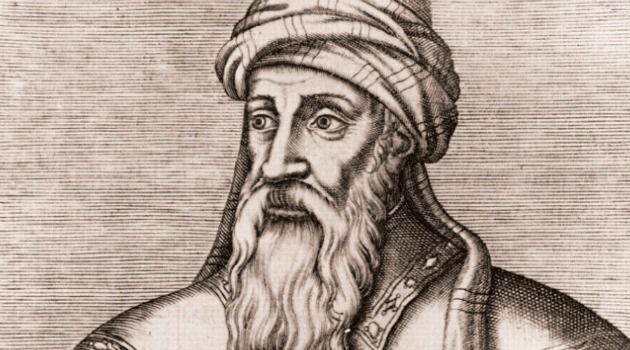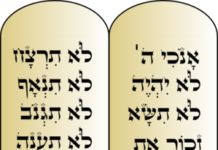This column explores letters that were written to or by Jews that made some kind of impact in their day, or shed light on a particular moment in time.
Today’s letter comprises the second in a two-part series. The first letter in this series was a note written by a man named David, who was the brother of the 12th century Jewish scholar and philosopher Moses ben Maimon, more commonly known today as the Rambam, or Maimonides. In his letter to Maimonides, David describes the arduous process of traveling both desert and ocean as he seeks to purchase exotic goods and return them to his home town to sell. Scholars believe that this was the last letter Maimonides ever received from his brother: David’s boat would be shipwrecked on the Indian Ocean and he likely drowned. Before the unexpected discovery of David’s letter in 1954, scholars knew about David and his tragic death from a more well-known letter written by Maimonides to a judge named Eliyahu. In this letter, Maimonides describes his close relationship with David and gives us a rare view into his personal life:
The greatest misfortune that has befallen me during my entire life—worse than anything else—was the demise of the saint, (may his) m(emory) be b(lessed), who drowned in the Indian sea, carrying much money belonging to me, to him, and to others, and left with me a little daughter and a widow. On the day I received that terrible news I fell ill and remained in bed for about a year, suffering from a sore boil, fever, and depression, and was almost given up. About eight years have since passed, but I am still mourning and unable to accept consolation. And how should I console myself? He grew up on my knees, he was my brother, he was my student; he traded on the markets, and earned, and I could safely sit at home. He was well versed in the Talmud and the Bible, and knew (Hebrew) grammar well, and my joy in life was to look at him. Now, all joy has gone. He has passed away and left me disturbed in my mind in a foreign country. Whenever I see his handwriting or one of his letters, my heart turns upside down and my grief awakens again. In short, “I shall go down to the nether world to my son in mourning” (Genesis 37:35). (Y. Sheilat, Iggerot ha-Rambam Volume I (Jerusalem: Ma’aliyot, 1987) 1.311.
Maimonides confesses to Eliyahu that in the year following David’s death, he lay bed-ridden, sick, and inactive in despair. Maimonides views David’s risky mercantile ventures as a sacrifice that David made on Maimonides’ behalf in order to allow Maimonides the luxury of more intense engagement in Torah study. In this comment, Maimonides implies that he feels a degree of guilt for his brother’s drowning on the Indian Ocean. Given that Maimonides describes David as being a scholar in his own right, David’s sacrifice to give up his own learning and work in order to support his brother must have weighed heavily on Maimonides’ mind.
Colorful detail regarding the life of David and Maimonides’ acute grief in the wake of David’s death makes David’s loss feel palpable to the modern reader. In one such detail, for instance, Maimonides describes the pangs of grief that he experiences upon looking over the papers on his desk and finding letters written in David’s handwritings. These letters cause Maimonides to re-experience his initial feeling of awful loss all over again.
Maimonides’ statement that his brother’s untimely death was the greatest misfortune of his life, moreover, is remarkable, since Maimonides experienced other traumatic misfortunes during his lifetime. He and his family were compelled to leave their homeland of Cordoba, Spain, after the Almohads conquered the region and selected to removed non-Muslims’ dhimmi status, the status which protected Jews and Christians from persecution and forced conversion. Under the threat of forced conversion, Maimonides and his family moved to Southern Spain, Fez in Morocco, and finally, Cairo, where Maimonides began a new life and built a career as a court physician for Grand Vizier Al Qadi al Fadil, and later to Sultan Saladin.
Maimonides’ letter to Eliyahu affirms what we noted in our earlier column regarding the letter written by David: these two brothers shared an unusually close bond. While their lifestyles were not similar—David was a merchant and Maimonides was a scholar and physician—their mutual respect and love is evident in each of these letters. Maimonides’ poignant letter is crucial in understanding Maimonides’ emotional life, and the close ties he felt to his family.
If you know of a letter related to Jewish history that you’d like to share, I invite you to be part of this project by submitting information to [email protected].







